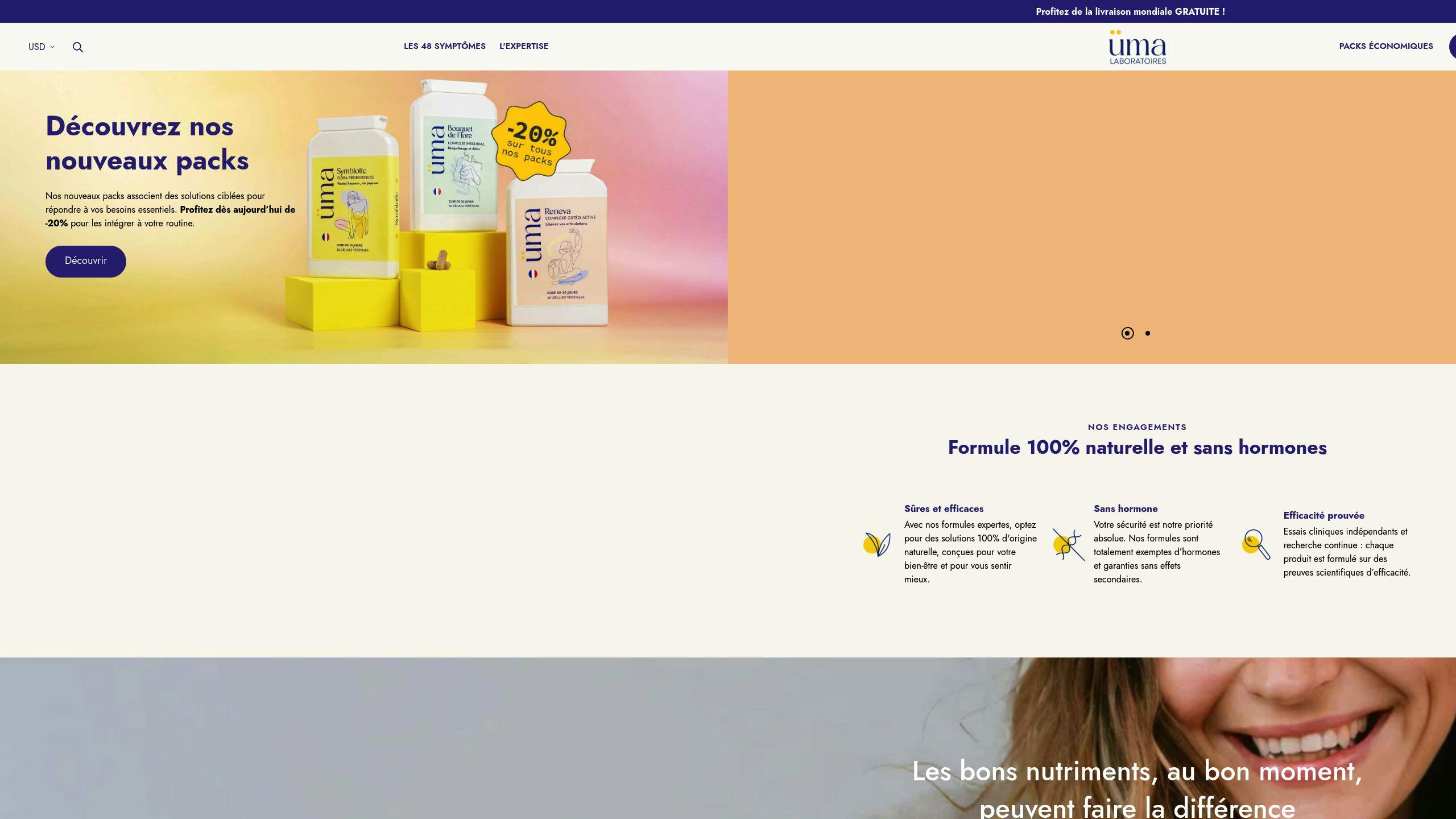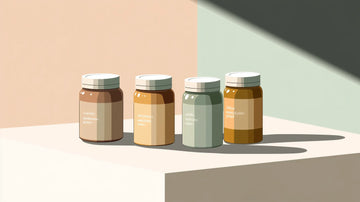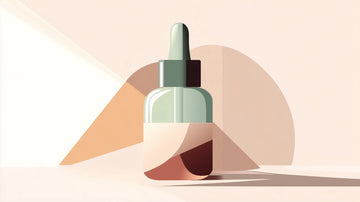After turning 50, oxidative stress increases, impacting the skin, hormones, and inflammation. Antioxidants such as vitamin C, vitamin E, selenium, and polyphenols are essential for protecting cells and supporting vitality.
Key Points:
- Vitamin C: Strengthens the immune system and stimulates collagen (citrus, peppers, broccoli).
- Vitamin E: Protects the skin and helps with hormonal balance (almonds, olive oil).
- Selenium: Supports the thyroid and reduces oxidative stress (Brazil nuts, tuna).
- Polyphenols: Fight against inflammation (green tea, berries, dark chocolate).
Why integrate them?
- Skin : Protects against aging.
- Hormones : Helps regulate imbalances related to menopause.
- Inflammation : Reduces pain and supports overall health.
Quick tip: Combine antioxidant-rich foods into your meals (e.g., colorful salad with berries and nuts). A varied diet and an active lifestyle optimize their effects.
Related video from YouTube
Understanding Antioxidants and Their Function
Antioxidants are molecules that play a key role in protecting our cells. Their main mission? To neutralize free radicals by sharing their electrons, which helps prevent cellular damage.
Free Radicals and Oxidative Stress: The Basics
Oxidative stress occurs when free radicals, generated by factors such as pollution, UV rays, or stress, attack the cells. These unstable molecules, with unpaired electrons, trigger chain reactions that are harmful to the body. Antioxidants work to stabilize these molecules and limit the effects of aging.
Different Types of Antioxidants
Antioxidants are classified into several types, each having a specific role:
- Antioxidant Vitamins: Vitamins C and E protect the skin, strengthen the immune system, and support hormonal balance.
- Antioxidant Minerals: Selenium, for example, supports the thyroid and reduces the effects of oxidative stress, particularly during menopause.
- Polyphenols: Found in red fruits or green tea, they help reduce inflammation and maintain skin health.
These different categories address specific needs, particularly among menopausal women, by targeting issues such as inflammation or skin aging. A varied diet, combined with appropriate supplementation under medical supervision, can provide optimal protection.
Let us now move on to an analysis of the antioxidants that are most suitable for women over 50.
Antioxidants to Prioritize after 50
Vitamin C: A Support for the Skin and the Immune System
To boost your immune system and promote collagen production, choose foods like citrus fruits, bell peppers, and green vegetables such as broccoli. Additionally, vitamin C helps produce white blood cells, strengthening your natural defenses.
Vitamin E: Preserving the Skin and Regulating the Hormones
Vitamin E plays a role in protecting the skin against free radicals, while also helping to maintain its radiance. It can also alleviate certain inflammatory symptoms associated with the hormonal changes of menopause. The best sources include almonds, hazelnuts, sunflower seeds, and olive oil.
Selenium: Essential for the Thyroid
Selenium contributes to the proper functioning of the thyroid. Here are some foods rich in selenium:
| Food | Selenium content | Recommended Serving |
|---|---|---|
| Brazil nut | 544 micrograms | 1-2 nuts per day |
| tuna | 85 micrograms | 100 g |
| Sardines | 45 micrograms | 100 g |
Polyphenols: Combating Inflammation
Polyphenols are known to reduce chronic inflammation, an issue that is particularly important after 50. You will find them in:
- Berries such as blueberries and raspberries
- Green tea
- Dark chocolate (at least 70% cocoa)
Combining vitamins C and E with polyphenols provides complete antioxidant protection. For example, a breakfast consisting of citrus fruits, nuts, and berries covers a wide range of antioxidant benefits.
By incorporating these fresh and varied foods into your daily routine, you can effectively support your vitality and well-being after 50. Let's move on to practical advice for easily including them in your meals.
Integrate Antioxidants into Your Diet
Antioxidant-rich foods
Green vegetables, berries, and nuts play a key role in increasing your antioxidant intake. These foods can help maintain your well-being after 50 and reduce discomforts associated with menopause. Consider including them throughout your meals.
Some ideas to enrich your diet:
- Breakfast: Add fresh fruits and some seeds.
- Lunch : Prepare a salad with a variety of colorful vegetables.
- Dinner: Opt for seasonal vegetables paired with lean proteins.
Rely on seasonal fruits and vegetables to obtain natural antioxidants. A colorful plate is not only appetizing, it also offers you a variety of antioxidants.
The Use of Antioxidant Supplements
Dietary supplements may be useful for addressing certain deficiencies, but it is essential to use them under the supervision of a healthcare professional, especially if you are already undergoing medical treatment. Always consult your doctor before beginning supplementation.
"Selenium supplementation can be particularly beneficial for women over 50, especially those following a restrictive diet or living in regions where the soils are low in selenium."
However, nothing can replace a varied diet rich in fruits and vegetables. Supplements should be used to complement a balanced diet, not to substitute for it.
Adopting certain lifestyle habits can also optimize the action of antioxidants, as we will see in the next section.
Lifestyle Tips to Optimize the Effects of Antioxidants
Exercise and Stress Management
Regular exercise can strengthen the action of antioxidants. Research published in the Journal of Aging Research has shown that moderate physical activity stimulates antioxidant enzymes in seniors, thereby reducing oxidative stress.
To get the most out of it:
- Practice 30 minutes of moderate exercise each day.
- Opt for activities such as walking, swimming or yoga.
- Maintain a regular routine, without overdoing the intensity.
At the same time, practices such as meditation or deep breathing exercises can help effectively reduce oxidative stress.
"Regular exercise is a powerful tool for boosting antioxidant defenses and reducing oxidative stress." - Dr. David Nieman, Professor of Health and Exercise Sciences
Reduce Exposure to Toxins
The toxins present in the environment increase oxidative stress. By limiting their impact, you protect your cells and support your overall health. Here are some practical tips:
At home :
- Use air purifiers or natural household products.
- Regularly air out the rooms for a healthier environment.
Outside :
- Avoid highly polluted areas as much as possible.
- Protect yourself from passive smoking.
- Encourage outdoor activities in green spaces.
Good sleep is also essential for cellular regeneration. Reduce screen exposure before sleeping and adjust your room temperature for optimal rest.
Adopting these habits, in addition to a diet rich in antioxidants, can enhance their impact. By reducing oxidative stress and supporting your natural defense mechanisms, you maximize the benefits of antioxidants in your daily life.
Conclusion: Antioxidants and Healthy Aging
Understanding the role of antioxidants in aging is essential, especially after 50. These compounds help fight oxidative stress, protect cells, and support overall health, particularly during menopause.
Some antioxidants such as selenium and polyphenols offer specific benefits. Selenium, for example, helps reduce oxidative stress in menopausal women, according to several studies. Polyphenols, which are found in green tea and certain fruits, help decrease chronic inflammation, support cardiovascular health, and alleviate some menopause-related symptoms such as hormonal imbalances.
To get the most out of antioxidants, it is useful to adopt simple but effective habits:
- Consume a variety of colorful fruits and vegetables
- Engage in regular physical activity
- Managing everyday stress
- Reduce exposure to toxins
Antioxidants prevent cellular damage and support healthy aging, but they work best as part of a balanced diet and a healthy lifestyle.
However, it is important to keep in mind that antioxidants are not a magic solution. They are part of a comprehensive approach to health, combining a balanced diet, exercise, and toxin reduction to maximize their effects.
By incorporating foods rich in antioxidants and adopting a healthy lifestyle, you can not only improve your well-being, but also promote a longer and healthier life.
Additional Resources for Health During Menopause
Products Offered: Laboratoires üma

In addition to a balanced diet and a healthy lifestyle, certain natural solutions can meet the specific needs of women after 50.
Les Laboratoires üma offer supplements designed for this stage of life. Among their products, Harmonie Daily® helps combat oxidative stress thanks to a formula rich in natural antioxidants, while Iconique Collagène® supports the skin during menopause.
| Product | Advantages related to Antioxidants |
|---|---|
| Symbiotic® | Supports immunity and promotes intestinal balance |
| Hello® | Provides essential antioxidant vitamins and minerals |
| Pack Total Rejuvenation | Combine collagen and antioxidants for revitalized skin |
Resources to Deepen Your Knowledge
To better understand the management of menopause symptoms and the role of antioxidants, institutions such as the National Institute on Aging offer practical guides. Meanwhile, the American College of Obstetricians and Gynecologists publishes scientific articles on the subject.
If you would like advice tailored to your situation, do not hesitate to consult a healthcare professional. They will be able to guide you in integrating antioxidants into your routine in a personalized manner.
This information and these products can support you in your journey toward well-being after the age of 50.
Frequently Asked Questions
What are the best antioxidants during menopause?
During menopause, certain antioxidants play a key role in mitigating the effects associated with the decrease in estrogen levels. Here is an overview of the most useful ones and how to incorporate them into your diet.
| Antioxidant | Main advantages |
|---|---|
| Vitamin C | Supports the immune system, aids in collagen production, fights oxidative stress |
| Vitamin E | Protects the skin, contributes to hormonal balance, reduces oxidative damage |
| Selenium | Supports thyroid function, reduces oxidative stress, contributes to hormonal regulation |
"It is advised to consume at least 5 portions of fruits and vegetables per day to benefit from a variety of vitamins, minerals, and antioxidants," recommends Dr. Sophie Deram, nutritionist.
A few ideas to enrich your diet with antioxidants:
- Vitamin C: add citrus fruits, kiwis, or berries to your meals.
- Vitamin E: incorporate almonds, hazelnuts, or sunflower seeds.
- Selenium: eat Brazil nuts or fish like tuna and salmon.
Before starting supplementation, consider consulting a healthcare professional. A varied and balanced diet remains the best way to enjoy the benefits of these essential nutrients.






